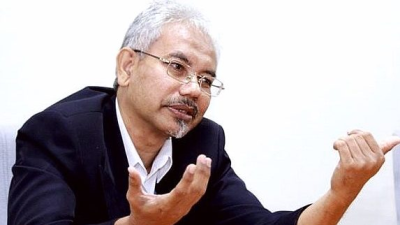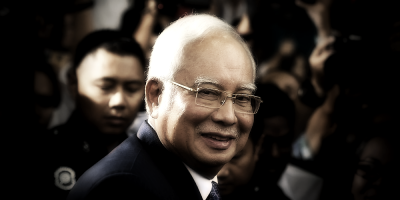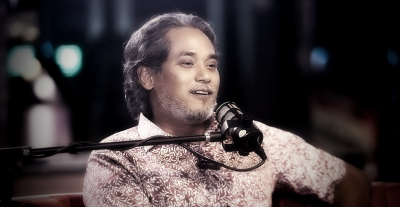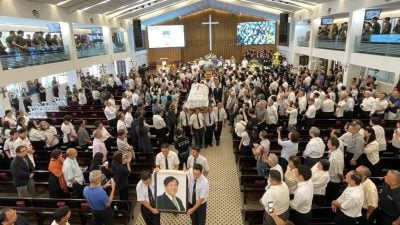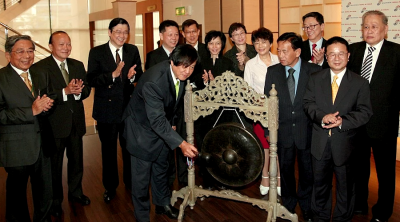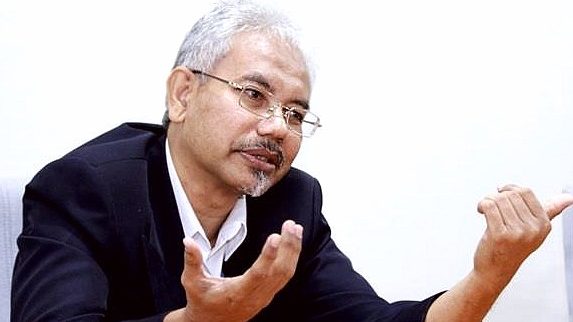
I made an extensive study about the origin of the mosque for my PhD dissertation, and one of its elements is the minaret that relate directly to the Azan or Muslim call for prayers.
Many Muslims are familiar with the Azan and it has become a “necessary” part of their lives to hear it five times a day.
Many Muslims have not experienced living in non-Muslim countries like the US, UK or Australia where there are literally hundreds of mosques but no Azan can be heard outside the compound of the mosques.
The issue of Azan has always been a flashpoint, and bad politicians always make the issue worse by capitalizing on sentiments while ignoring both the Islamic religious facts and the historical evidence that is incontrovertible.
For both Muslims and non-Muslims, I present the simple religious facts about the Azan.
The Azan is NOT a requirement for the performance of prayers. Thus, any Muslim who says that the Azan is “obligatory” does not know his or her religion.
Here are the religious narration about the performance of solat or prayers in Islam.
In the Sirah of the Prophet Muhammad, it was shown that the Prophet received the order for the five obligatory prayers during his miraculous Ascension to heaven until it was said that he was in the presence of Allah with a thin veil between the two.
What is the important note here? There is no Azan being discussed by Allah and the Prophet Muhammad. The hadith of the event is as follows:
It was narrated that Anas ibn Maalik said: Abu Dharr narrated that the Messenger of Allaah (peace and blessings of Allaah be upon him) said: “The roof of my house was split open when I was in Makkah, and Jibreel (peace and blessings of Allaah be upon him) came down and split open my chest and washed it with Zamzam water. Then he brought a golden vessel filled with wisdom and faith and poured it into my chest, then he sealed it. Then he took me by the hand and ascended with me into the lowest heaven. When I reached the lowest heaven Jibreel said to the gatekeeper, ‘Open up!’ He said, ‘Who is this?’ He said, ‘Jibreel.’ He said, ‘Is there anyone with you?’ He said, ‘Yes, Muhammad (peace and blessings of Allaah be upon him) is with me.’ He said, ‘Has his mission begun?’ He said, ‘Yes.’ And when it was opened we went up into the lowest heaven… Then Allaah enjoined upon my ummah fifty prayers, and I came back until I passed by Moosa who said, ‘What has Allaah enjoined upon your ummah?’ I said, ‘He has enjoined fifty prayers.’ He said, ‘Go back to your Lord, for your ummah will not be able to bear that.’ So I went back and He reduced it. Then I came back to Moosa and said, ‘He has reduced it.’ He said, ‘Go back to your Lord, for your ummah will not be able to bear that.’ So I went back and He reduced it further. Then I came back to Moosa and said, ‘He has reduced it further.’ He said, ‘Go back to your Lord, for your ummah will not be able to bear that.’ So I went back and He said, ‘(The prayers) are five but (the reward) is fifty. The Sentence that comes from Me cannot be changed [cf. Qaaf 50:29].’ Then I went back to Moosa and he said, ‘Go back to your Lord.’ But I said, ‘I feel shy before my Lord.’…”
(Narrated by al-Bukhaari, 342; Muslim, 163)
The Ascension of the Prophet only established the number of prayers, not the method of prayers nor the times of prayers.
How did these two come about? Again the Sirah and the Hadith clearly showed that the Angel Jibrail came to the Prophet Muhammad as a man and led him in the five prayers at different times of the day until the Prophet memorized the rituals and the words of the prayers.
Abdullah bin Abbas (RA) narrates that on being asked about Musallah Jibreel, Prophet Muhammad (PBUH) said: “Jibreel (AS) led me in prayer at the House (i.e., the Kaaba). He prayed the noon prayer with me when the sun had passed the meridian to the extent of the thong of a sandal; he prayed the afternoon prayer with me when the shadow of everything was as long as itself; he prayed the sunset prayer with me when one who is fasting breaks the fast; he prayed the night prayer with me when the twilight had ended, and he prayed the dawn prayer with me when food and drink become forbidden to one who is keeping the fast.
On the following day, he prayed the noon prayer with me when his shadow was as long as himself; he prayed the afternoon prayer with me when his shadow was twice as long as himself; he prayed the sunset prayer at the time when one who is fasting breaks the fast; he prayed the night prayer with me when about a third of the night had passed, and he prayed the dawn prayer with me when there was a fair amount of light.
Then turning to me, he said: Muhammad, this is the time observed by the prophets before you, and the time is anywhere between two times.” [Sunan Abu Dawud]
However, with regards to the performance of the ritual ablution or “wudhu,” I have no idea who taught the Prophet how to perform it.
The hadiths only relate how the Prophet performed ablution and no one seems to ask the Prophet how or where he learned it from.
Again the most important issue here about the performance of the obligatory prayers and its times was that…there was NO AZAN being mentioned.
So, because of this, the ulamas are in agreement that the performance of prayers DO NOT necessitate the call of the Azan.
There is no need to remind Muslims through a loud call as everyone has watches and smartphones. The insistence of calling aloud is simply pure sentiment and political opportunism.
Now, when did the Azan appear?
As far as I know and have read the hadith, the Azan’s origin could be traced back more than a decade after the decree of the obligatory five times of daily prayers.
The Prophet’s Ascension to receive the decree was when he was in Mecca and his learning from Jibrail as to the method of prayers and the different times were also in Mecca.
However, the Azan is traced to the time when the Prophet was in Medina after the historic Hijrah or Holy Migration.
In Medina, the Prophet’s house became the center for community, politics, military center and the daily jemaah or community prayers.
The problem then was calling the Muslims to a particular time to pray together. A discussion ensued with the Muslims and the Prophet was present there.
Some Muslims suggested a bell while others suggested the horn. Both of these suggestions were rejected by many until Umar mentioned that he had a dream that a human voice called out people to prayers.
Another Muslim said he too had a similar dream.
When the Prophet heard this, he took it as a sign and it was then agreed that the voice of the human being would call Muslims to prayers.
The Muslims then called upon Bilal Ibn Rabah who used to be a slave to the Quraish nobleman, to be the first Muadhin or the Caller to Prayers.
To this day, the Muadhin in Malay is called “Bilal.”
The hadith from Sahih Al-Bukhari is as follows:
Volume 1, Book 11, Number 578:
Narrated Ibn ‘Umar:
When the Muslims arrived at Medina, they used to assemble for the prayer, and used to guess the time for it. During those days, the practice of Adhan for the prayers had not been introduced yet. Once they discussed this problem regarding the call for prayer. Some people suggested the use of a bell like the Christians, others proposed a trumpet like the horn used by the Jews, but ‘Umar was the first to suggest that a man should call (the people) for the prayer; so Allah’s Apostle ordered Bilal to get up and pronounce the Adhan for prayers.
What then is one important fact from this narration? The important fact is that the Azan existed as a tool to call people to prayer because there was no other tools existed like a watch that every person could hold to be the same time.
Therefore, the Azan evolved for more than a thousand years as the “watch” or “clock” to remind Muslims about the time of prayers.
Throughout that time, the Azan gained a culturally sacred position and is always sounded when Muslims are in a jemaah anywhere and everywhere in the world.
Thus, if Muslims were to travel to the North Pole or Antarctica or the planet Mars, the Azan will still resound as a continuation of tradition dating back to the time of the Prophet,
Thus, when I was studying for six years in Green Bay and Milwaukee in the US, the mosque, which was a converted elementary school, would always sound the Azan within the compound, for it was not allowed to disturb the surrounding community.
When I was in Edinburgh, the same manner of Azan within the compound was performed.
There is no need to remind Muslims through a loud call as everyone has watches and smartphones. The insistence of calling aloud is simply pure sentiment and political opportunism.
In countries where Muslims are an overwhelming majority, there is no question that the tradition of calling aloud the Azan beyond the mosque compound is accepted and understood.
In the old days of Masjid Kampung Laut in Kelantan, Masjid Kampung Tuan in Terengganu and Masjid Kampung Hulu in Melaka, the call of Azan was preceded by the beating of the taboh drum or the wooden beduk. These tools were sounded because their sound could travel afar during the time when watches and clocks were not in existence.
As a note of interest, non-Muslims should know that the Azan can also be sounded to NOT ALLOW Muslims to come for prayers during times of natural disasters and civil strife.
Another note of interest is that Muslim fathers are recommended to sound the Azan softly to the ears of a newborn baby. Thus the first words Muslim infants hear are the calls to prayers.
So, the Azan is not just about prayers in mosques only.
Malays who are Muslims must understand these hadiths and make a balanced judgment on the Azan in modern times living in a multicultural and multifaith society.
Making the Azan the enemy of everyone was never the purpose of Islam, but unfortunately some Muslims feel an opportunity to play politics at the expense of the truth and beauty of the religion.
I must remind these Muslims that Allah does not have a place for those who use and sell Islam for the mere fee of gaining popularity and power in this world as well as those too ignorant to even learn their own religion.
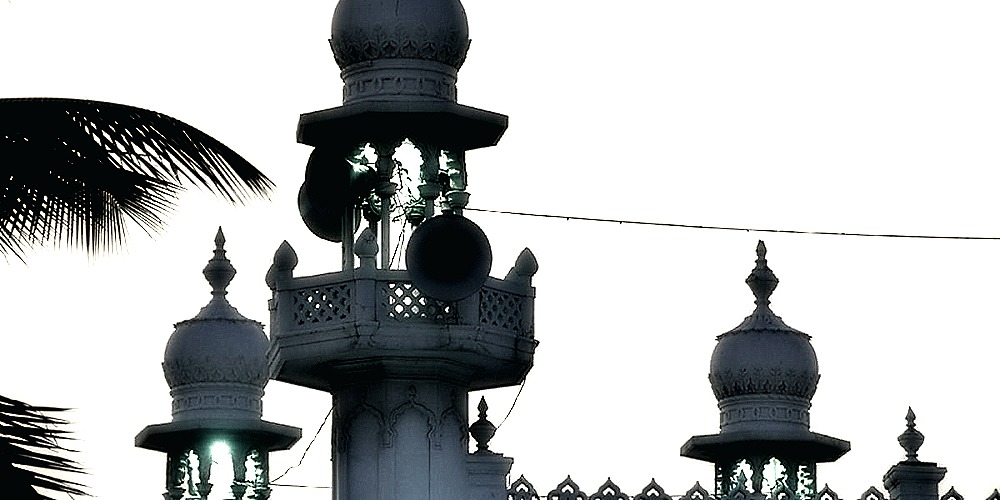
(Prof Dr. Mohd Tajuddin Mohd Rasdi is Professor of Architecture at a local university and his writing reflects his own personal opinion entirely.)
ADVERTISEMENT
ADVERTISEMENT






